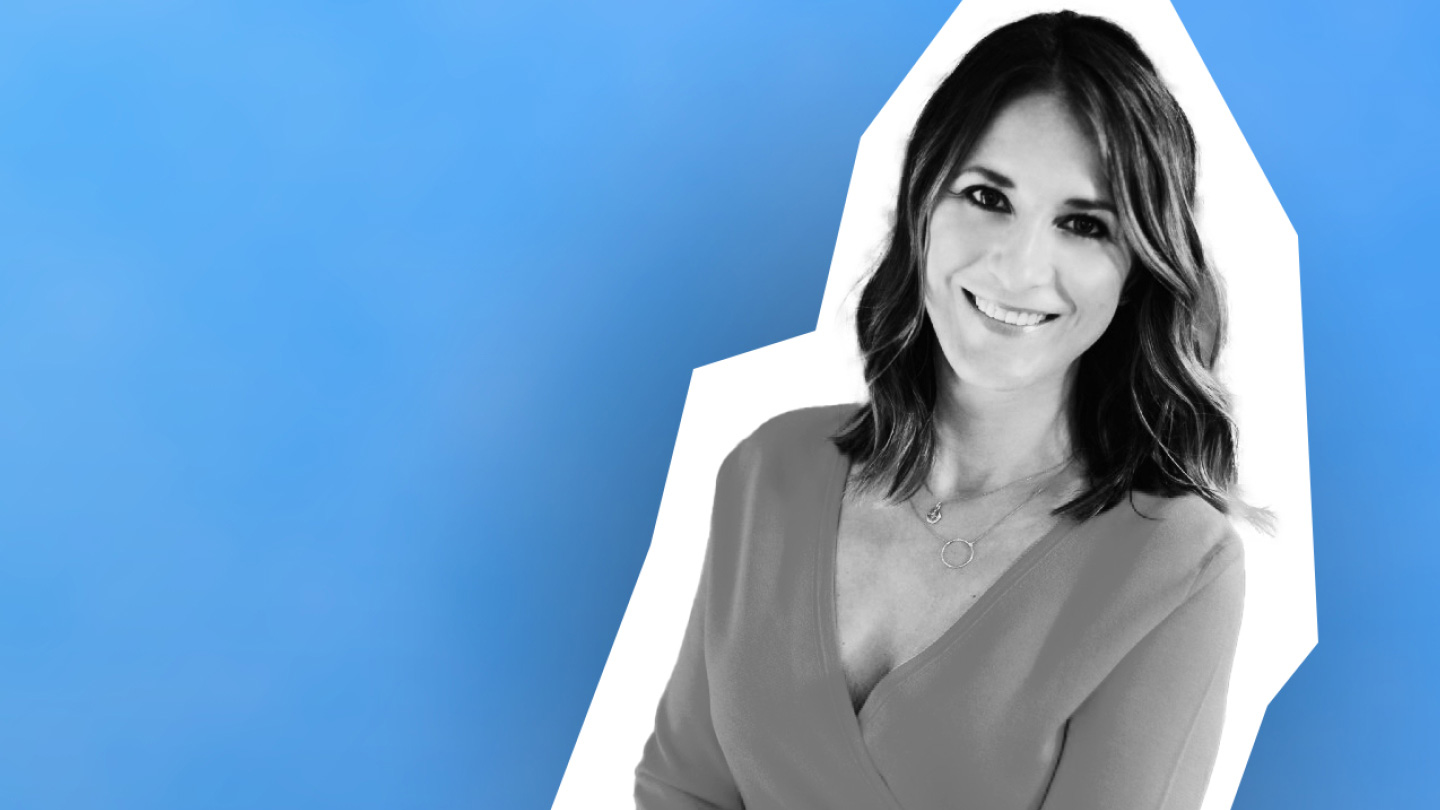As the very first employee at The Muse, Adrian Granzella Larssen recalls an early investor telling the company founder he would only write them a check if they stopped doing content. Rather than seeing content as a source of value, many investors at the time just thought it looked … expensive. And hard to scale.
During that period, Adrian had her own moments of doubt regarding her work, but then the readers of The Muse were there to remind her that her work had a deeper mission: helping people thrive in their careers.
“Any time I was feeling uncertain, I’d read one of the hundreds of emails we’d receive about how one of our articles helped someone land their dream job or figure out their passion,” she recalls. “It was hard to feel like we weren’t doing something impactful after that.”
Today, as the founder of Society, Adrian helps brands like SoFi, Chatbooks, Hairstory, Buffer and Skillshare build out their content strategy and operations.
Creating Content ‘From a Place of Care’
Adrian believes that content, when crafted with the right intention, can change people’s lives. This means producing work “from a place of care — of truly thinking about what a reader needs and how you can help them.”
“Working in editorial — particularly at The Muse — really felt like it was the perfect combination of my skills and interests,” Adrian recalls. “I got to use my creative side to come up with ideas for our burgeoning publication, my strategic side to help grow our traffic to more than 6 million monthly views, my love of relationship-building to foster a team of 500-plus freelance writers, and, obviously, my love of writing and communications to ensure all the content was helpful and clear. Most importantly, I got to see the content I was helping create truly change people’s lives.”
Adrian considers herself a “reader-first editor” — she’s constantly looking at content through the reader’s eyes and questioning whether it’s valuable and creates impact. That approach also led Adrian to focus on industries that she and her writers understand best; without that empathy and knowledge, it would be impossible to know what readers want.
A decade spent creating online content at scale has given Adrian the ability to quickly parse what’s working and what’s not for the desired audience. When she looks over a piece, she asks herself: “Does this flow? Is it fun, enjoyable, and engaging to read? Does it have some voice and personality that really elevates it to something memorable or special?”
Developing visionary content remains a tall order, especially with so much content out there. “I like to look for ways we can hit the keywords or cover the basic topic of an article, and then take it further,” she explains. “Is there additional information that would be helpful here? A story, anecdote or example that would make this more unique? Anything that can help this stand out in a sea of same?”
And the best part of all? That kind of content is usually what will deliver the highest engagement for your client.
The Secret to More Nuanced, Credible Content
We’ve shared before about the power of niching down, and Adrian is also a fan of specialization. “From a content strategy perspective, I think more brands need to home in more on exactly who they’re serving and what topics they cover instead of trying to be everything for everybody,” she explains. “It leads to much more nuanced, credible content.”
Even for creators, specializing by topic or content format can lead to stronger work. If you’re a writer, designer, producer or another type of creator, think about the handful of topics you could create around for the rest of your life. This exercise can help you identify your passions and what areas in which you can regularly create interesting content.
Adrian even uses this question to vet writers for her agency: “When writers say they’ll do anything, it’s a red flag to me that the content may end up on the generic side.”
Better Boundaries = Better Work
Adrian manages her busy workload by structuring her day around her energy levels and setting up boundaries.
For her, that looks like waking up early and getting “deep work” done first thing. After that, she batches meetings and emails in the late morning or works on long-term projects. In the early afternoon, she takes a break and runs errands, works out, catches up with loved ones or just rests. If she has another burst of energy later in the day, she’ll work again — if not, she won’t.
The boundaries Adrian sets are essential in creating the space she needs to thrive — and are good for clients. “I have a limited amount of time for meetings on my calendar, I don’t respond to emails immediately, and I avoid quick deadlines so my writers and I have time to do good work. So many freelancers or agency owners in the content world think they always have to be on and at their clients’ beck and call, when I really believe better boundaries lead to better work.”
To stay plugged in and up to date, Adrian maintains relationships with people in the industry, whether it’s folks who run agencies like hers or who work in-house at companies. She’s a proponent of being honest and transparent about best practices and sharing that information with so-called “competitors.”
“We’re all better off if we help each other out — plus, there’s more than enough content work out there for everyone,” she says.






